A pretty good sale from AncestryDNA, especially if you don’t have (and want) a subscription.
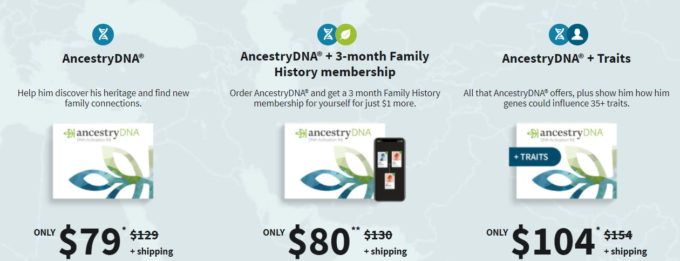
NOT an affiliate link.
A pretty good sale from AncestryDNA, especially if you don’t have (and want) a subscription.

NOT an affiliate link.
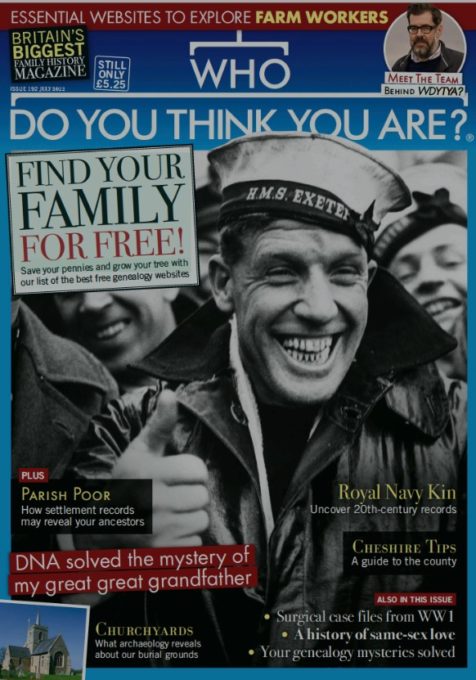 Not even waiting for June; the July issue came online on 31 May!
Not even waiting for June; the July issue came online on 31 May!
Feature contents for July:
FIND FAMILY FOR FREE Sarah Williams reveals how you can save your pennies and grow your tree with the Best Free Genealogy Websites. Most are familiar to the experienced genealogist. Some, like digitalpanoptican.org, you may have forgotten. New to me was https://www.genguide.co.uk/ said to rival the FamilySearch Wiki for UK topics.
CHURCHYARDS
In “What Lies Beneath” Celia Heritage explains how churchyard archaeology can help us research our ancestor’s life and death.
SERIES 19 INTERVIEW
Claire Vaughan meets the WDYTYA? production team.
SAME-SEX LOVE
In “Pride and Prejudice,” Harry Verity investigates the hidden lives of our LGBT relations who lived in 18th-and 19th-century Britain.
One of Editor Sarah Williams’s Top Tips in her Best Free Genealogy Websites article is that your local library will give you access to various digital resources. In Canada, that includes accessing a copy of this magazine available through PressReader.
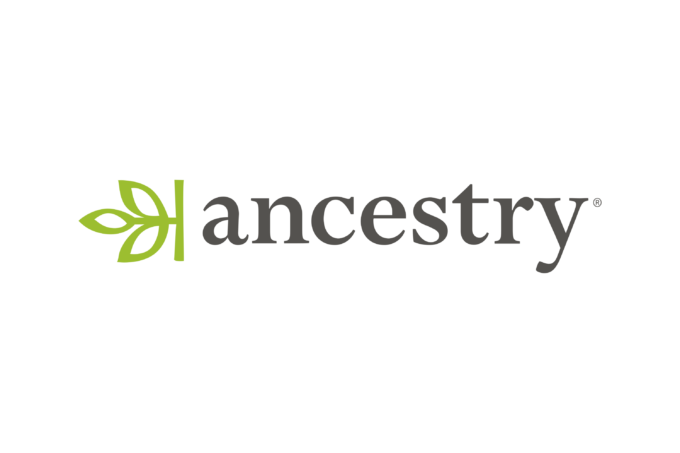 Here are new UK databases to look forward to from Ancestry.
Here are new UK databases to look forward to from Ancestry.
Edinburgh, Scotland, Extent Rolls, 1748-1829
Edinburgh, Scotland, Cemetery Registers, 1771-1935
Scotland, High Court Criminal Indexes, 1790-1919
Lancashire, England, Index of Wills and Probates Proved at Richmond and Chester, 1600-1858
Worcestershire Bishop Transcripts.
Here are UK and Ireland updates coming soon.
UK, Imperial Yeomanry Records, 1899-1902
Newspapers.com UK Obituaries
Newspapers.com UK Marriages
England and Wales, Death Index, 1989-2021
Scotland and Northern Ireland, Death Index, 1989-2021
Are you old enough to remember where you were on 2 June 1953?
The Coronation of Elizabeth II took place at Westminster Abbey in London on that date. My family travelled to London, not to be invited into the Abbey but to watch the ceremony on my grandparent’s new television. Then later that day, or perhaps the next, I was taken to The Mall to see distant figures waving from the balcony of Buckingham Palace. I missed the street party at home.
This site formulates and conducts a Google name in reverse order (Lastname Firstname), specifically excluding the most common expression of firstname lastname.
It claims to reveal many more legal- and data-based results by eliminating big sites like Pinterest, eBay, Amazon, LinkedIn, Facebook, and AbeBooks.
There’s also a keywords field where you can enter a few single-word modifiers that describe the person broadly to further refine the hits.
Today, 1 June 2022, marks a special anniversary worth celebrating.
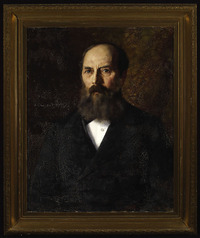
One hundred and fifty years ago today, Douglas Brymner – one-time coal merchant, farmer and journalist – took up his appointment as a clerk in the federal Department of Agriculture with instructions to investigate the extent and nature of archives in Canada.
On a salary of $50 per month, Brymner accepted the challenge that would occupy him for the next thirty years. He was almost forty-nine years of age, a husband and father of seven, and he was now making a fresh start in a new career, in an enterprise that was neither understood nor defined, with a mandate that was simply vague. The beginnings of this significant national undertaking were modest indeed.
With the British military withdrawal from Canada in 1871, Brymner argued that the records should remain in Canada. It was his first major acquisition. He next turned his attention to copying by hand relevant records in England and France, an enterprise that would continue for the next century. Brymner died in 1902, but his successor, Arthur G. Doughty, took inspiration from his achievements, established the Public Archives of Canada in 1912 and created in Ottawa, a mecca for research that attracted scholars from across Canada and beyond.
On 1 June 1872, Brymner’s work began in the basement of the West Block on Parliament Hill, in three empty rooms, with no staff or assistance of any kind and not a single document in his custody. It was, he observed, “a task of more than ordinary difficulty.”
At 150, our national archives, now an integral part of Library and Archives Canada, is a venerable institution. Brymner, Doughty and all those who followed in their footsteps have been dedicated to acquiring, preserving and making available our documentary heritage.
Today, we salute those who have created and continue to create an archive that is essential not only to our own personal research but a national resource that is the foundation for understanding Canada and the full diversity and complexity of its people and its history.
Researched and written by Glenn Wright
 The June/July2022 issue will be available June 8, 2022. Here’s the table of contents.
The June/July2022 issue will be available June 8, 2022. Here’s the table of contents.
COVER: Get the Most From Family History Conversations
Sue Lisk looks at effective ways to have those family history conversations
Ten Ways to Share Your Genealogy at a Family Reunion
Lisa A. Alzo offers tips for planning your next family gathering with genealogy in mind
Circuses and Family History
David A. Norris looks at records left by the once-popular form of entertainment
Dying Wishes and Final Thoughts
Robb Gorr looks at wills and testaments and what they can tell you about your ancestors
Early American Sources
Diane L. Richard examines a website encompassing archives and other sources for the Americas
1950 U.S. Census Explained
Karen L. Newman looks at what you might find in the 1950 U.S. Census
An Unsung Hero of the Great War
Colleen Callahan Gilbert remembers her late father-in-law through his personal papers
Logging and Our Ancestors
Sue Lisk looks at several websites devoted to the history of the logging industry in North America
Dog Collars: Clerical and Canine
Michelle Dennis looks at the resources for researching Devon and Cornwall ancestors
Permanent Legacy Foundation
Diane L. Richard looks at living archives for personal, family or community applications
Review: Photoshop Elements 2022
Lisa A. Alzo reviews a popular photo editing software program
Photos and Genealogy
How do capture other peoples’ stories?
NetNotes
Internet Genealogy looks at websites and related news that are sure to be of interest
Stories Lead to Family History
Getting children involved in family history conversations
Back Page:
What will the future hold for genealogy research in Ukraine?
Click an underlined heading to preview the first page of an article!
Choose from free online events in the next five days. All times are ET except as noted. Those in red are Canadian, bolded if local to Ottawa or recommended. Assume registration in advance is required; check so you’re not disappointed.
Tuesday 31 May. 2 pm: Virtual Genealogy Drop-In, from Ottawa Branch of OGS and The Ottawa Public Library.
https://ottawa.ogs.on.ca/events/
Tuesday 31 May. 10 pm: The Bones – New Zealand Civil Registration, by Fiona Brooker for Legacy Family Tree Webinars.
https://familytreewebinars.com/webinar/the-bones-new-zealand-civil-registration/
Tuesday 31 May. 2:30 pm: Preserving Your Family’s History Through Scanning by Kay Spears for Allen County Public Library Genealogy Center.
https://acpl.libnet.info/event/6588685
Wednesday 1 June at 12 pm: Using FamilySearch Images, by FamilySearch Family History Library.
https://churchofjesuschrist.zoom.us/webinar/register/2016474523914/WN_M76Gn6jtSDy1GhMHhvej0w
Wednesday 1 Jun. 2 pm: Using DNA To Solve Interlinked MysteriesSeeking the Best Evidence: Targeted Testing for Genetic Genealogy Proof, by Michelle Leonard for Legacy Family Tree Webinars.
https://familytreewebinars.com/webinar/using-dna-to-solve-interlinked-mysteries/
Wednesday 1 Jun. 7:30 pm: Indigenous Peoples, Primary Sources, and Huron County, by Michelle A. Hamilton for Huron Branch OGS.
https://huron.ogs.on.ca/
Thursday 2 June. 6:30 pm: Working with Autosomal DNA Matches Part 2, by Sara Allen for Allen County Public Library Genealogy Center.
https://acpl.libnet.info/event/6727820
Thursday 2 June. 7 pm: What’s New on MyHeritage . com? by James Tanner for Brigham Young University (BYU) Family History Library. No pre-registration required.
byu.zoom.us/j/97185943513?pwd=TkUyRkhucTJPMDVmRUROSm1RbWdlZz09
Thursday 2 June 7 pm: The Commonwealth War Graves Commission: Remembering the Fallen, by Coral Harkies for OGS/Ontario Ancestors.
https://ogs.on.ca/upcoming-webinars/ (scroll down)
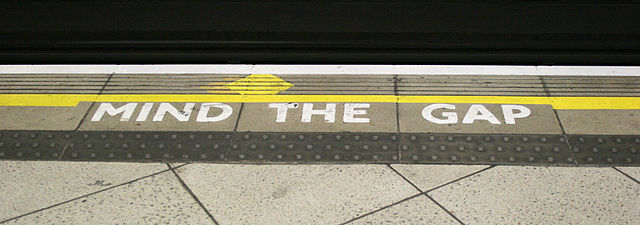
Saturday 4 June, 4 pm: Finding Family in Western Canada, by Dave Obee for Eastern Washington Genealogical Society.
https://ewgsi.org/
The Findmypast newspaper archives, with the same content as the British Newspaper Archive, is free from 30 May to 6 June to celebrate Queen Elizabeth II’s Platinum Jubilee.
The British Newspaper Archive now with a total of 53,458,903 pages online (50,585,003 last month).
This month 206 papers had pages added (148 in the previous month). There were 21 (29) new titles. Dates range from 1810 to 1998.
The large number of additions is likely due to more recent issues that were born digital.
The 28 newspapers with more than 10,000 pages added are
Daily Record (Glasgow) 1986-1988, 1994-1995
Peterborough Standard 1986, 1988
Tamworth Herald 1989, 1992, 1996-1997
Ilkeston Express 1989, 1992-1997
Solihull News 1988-1989, 1994-1998
Nottingham Recorder 1981-1983, 1988, 1990-1991, 1993-1996
Nottingham Evening Post 1993-1995
Middlesex County Times 1910, 1952, 1974, 1979, 1994-1995, 1998
Heartland Evening News 1994, 1998
Huddersfield Daily Examiner 1898, 1993-1995
Huntingdon Town Crier 1987, 1989, 1991, 1993, 1996
Hertford Mercury and Reformer 1873, 1981, 1994, 1996
Bebington News 1989-1992
Solihull Times 1992, 1994-1996, 1998
Stanmore Observer 1987-1990, 1992
Nantwich Chronicle 1993-1996
Northampton Herald & Post 1990-1991
Hinckley Times 1991, 1993, 1998
Hoddesdon and Broxbourne Mercury 1993-1994, 1998
Chester Chronicle14674 1993, 1995-1996
Cambridge Daily News 1989, 1991-1992
Clevedon Mercury 1876, 1879, 1989-1991
Paisley Daily Express 1996-1997
Herne Bay Press 1883-1897, 1899-1912, 1919-1975
Harlow Star 1988, 1990-1991
South Western Star 1889-1949
National Observer (Edinburgh) 1888-1897
Birmingham Mail 1873, 1995
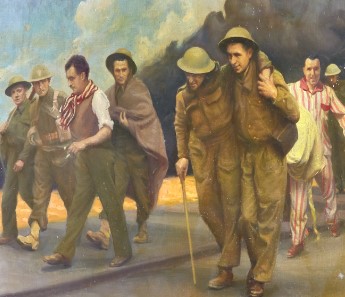 Eighty-two years ago, 27 May – 4 June 1940, over 300,000 troops were being evacuated as German forces overran Dunkirk.
Eighty-two years ago, 27 May – 4 June 1940, over 300,000 troops were being evacuated as German forces overran Dunkirk.
Canadian’s role is usually overlooked. “Though Canadian troops joined the British Expeditionary Force in late 1939, there were not large numbers in France in May 1940. The Historic UK website (?) notes some Canadians were evacuated from Dunkirk, along with French, Belgian and British troops.”
That’s according to Canadians and Dunkirk which notes contributions that were certainly not insignificant.
James Campbell Clouston, born and raised in Montreal, attended McGill and joined the Royal Navy in 1918. He assumed the role of pier-master on Day 3 of the evacuation and remained at his post for the next five days and nights. Armed only with a loud-hailer and a pistol (which he had to employ at least once to restore order) Clouston ushered more than 200,000 onto ships. He was relieved, then volunteered to return, only to have the speedboat he was on attacked by dive-bombers and sunk. Clouston and a dozen sailors eventually succumbed to the frigid water and drowned.
Commander James Campbell Clouston is remembered at the Canadian Virtual War Memorial.
You may also be interested in a post from Family Tree magazine — Dunkirk painting owned by Sir Winston Churchill goes on public display. An extract is used to illustrate this post.
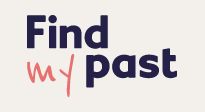 Discover 220,000 new marriage transcription records from 470 Herefordshire parishes between 1538 and 1838, new on Findmypast.
Discover 220,000 new marriage transcription records from 470 Herefordshire parishes between 1538 and 1838, new on Findmypast.
I found four entries for an ancestral 1822 marriage, None included the father’s name, only available for later marriages, and one gave the additional information, the home parish of the groom.
The FMP announcement on Friday mentioned the records were “provided by the Hereford Family History Society and published solely on Findmypast.” However, the record mentioned above has been available from FamilySearch for many years and is part of the Ancestry “Select” collection.